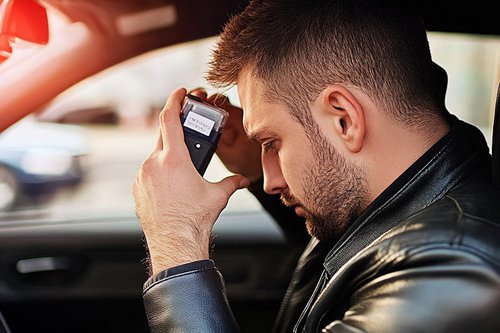Arrested for DUI in Canada? — Here’s Your Comprehensive Guide

Get the facts on DUI charges in Canada, potential penalties, and how to defend yourself with expert legal advice. Stay informed to avoid life-altering consequences.
Key Takeaways
- DUI Penalties : First-time offenders face fines, license suspension, and higher insurance rates.
- Repeat Offenders : Penalties increase, including jail time and permanent license suspension.
- Types of DUI : Impaired driving, over 80 mg, refusal to provide a sample, and more.
- Potential Outcomes : Charges can be withdrawn, dismissed, reduced, or lead to a conviction.
- Legal Defence : Consulting DUI lawyers like Jeff Mass and Robbie Tsang can improve your outcome.
What Happens When You Get a DUI in Canada?
Despite intensive public education efforts and decades of increasing enforcement efforts and penalties, Canadians continue to drive while impaired by alcohol and/or drugs. According to Statistics Canada, 38,252 people were arrested for impaired driving in 2021 , and recent data shows this figure increased slightly in 2022 to 39,063 arrests . If police charged that many people with DUI (driving under the influence), how many impaired drivers did the police miss that year?
It's anyone's guess, but the DUI lawyers at TorontoDUI — including Jeff Mass and Robbie Tsang — assume the number is at least double, if not triple. You probably do not want to join the ranks of those arrested for impaired driving, so we'll give you two — no, make that three — bits of advice:
- Don't drink and drive.
- Don't consume drugs and drive.
- Reinforce these thoughts by understanding the potential consequences.
Seems simple, right?
"Many clients underestimate the gravity of DUI charges," says Jeff Mass . "Understanding the consequences can be a powerful deterrent."
Here is a comprehensive guide on what you can expect should you be arrested for impaired driving in Canada. And let's start with the worst-case scenarios — the penalties.

First-Time Offence Penalties
First-time DUI? — No problem! That is unless you're convicted, which means that you'll be in a world of hurt. For a first-time conviction in Ontario , you can expect at a minimum:
- $1,000 fine — cha-ching!
- One-year driver's license suspension — ouch!
- Mandatory enrollment in Ontario's “ Back on Track " education/treatment program, with a $634 fee .
- Likely enrollment in an Ignition Interlock program , with fees of at least $1,000 .
- "High Risk" annual insurance premium increases ranging from $2,000 to $10,000 , lasting up to six years.
- Minimum $281 in fees for driver's license reinstatement.
- Permanent criminal record that can jeopardize employment and educational opportunities.
- Alternative transportation costs during license suspension.
Visual Breakdown of First-Time DUI Penalties
| Penalty | Cost/Consequence |
| Fine | $1,000 |
| License Suspension | 1 Year |
| "Back on Track" Program | $634 Fee |
| Ignition Interlock Program | $1,000+ |
| Insurance Premium Increases | $2,000 - $10,000 annually (up to 6 years) |
| License Reinstatement Fee | $281 |
| Criminal Record | Permanent |
Subsequent Offence and Aggravating Circumstances Penalties
If you did not learn the first time, the government will naturally ramp up the penalties should you be arrested for DUI again. Robbie Tsang explains, "Repeat offenders face significantly harsher penalties because public safety is a top priority."
For a second DUI , penalties include:
- Mandatory minimum 30-day jail term.
- Three-year driver's license suspension.
- Judge-determined fine.
- Longer ignition interlock periods.
- Potential court-ordered probation.
For a third or subsequent DUI , penalties escalate further:
- Mandatory minimum three-month jail term.
- Permanent driver's license suspension.
Aggravating Factors for Harsher Sentencing
- Causing death or bodily harm .
- Excessive blood alcohol concentrations.
- Racing other vehicles.
- Operating a large vehicle while impaired.
- Having passengers under 16 in the vehicle.
- Operating impaired as a commercial driver .
Chart of Aggravating Factors and Consequences
| Aggravating Factor | Potential Consequence |
| Causing Death or Bodily Harm | Lengthy Prison Sentence |
| Excessive Blood Alcohol Concentration | Increased Fines & Jail Time |
| Racing or Large Vehicle Operation | Higher Jail Terms & Suspensions |
| Underage Passengers | Stricter Sentencing & Fines |
Question : What are the penalties and outcomes if you're arrested for a DUI in Canada?
Answer : DUI penalties vary by offence type and frequency. First-time offenders face fines, license suspensions, and mandatory programs. Repeat offenders receive harsher penalties, including jail time. Consulting an experienced DUI lawyer can help mitigate these outcomes.
Types of DUI and Evidentiary Matters
When you are charged with DUI in Canada, police generally base the charges on at least one of these parameters:
- Impaired Driving — Based on police observations of impairment by drugs or alcohol.
- Over 80-plus mg — Breathalyzer showing BAC exceeding 80 mg of alcohol per 100 ml of blood.
- Refusing Breath Sample — Same consequences as a DUI conviction.
- Care and Control — You're in a position to operate the vehicle, even if not driving.
- Underage Impaired Driving — Zero tolerance for drivers under 21 years old .
"Care and control charges can surprise people," notes Jeff Mass . "Even being in the driver's seat while impaired can lead to a conviction."

DUI Types at a Glance
| DUI Type | Description |
| Impaired Driving | Observed physical impairment by drugs/alcohol |
| Over 80-plus mg | BAC over 80 mg per 100 ml of blood |
| Refusing Breath Sample | Refusal to provide a breath test |
| Care and Control | Ability to put vehicle in motion while impaired |
| Underage DUI | Zero tolerance for under-21 drivers |
Potential DUI Outcomes
Just because you are arrested for impaired driving does not mean you will be convicted of DUI. Robbie Tsang advises, "An arrest is not a conviction. There are often ways to challenge the evidence."
Possible Outcomes:
- Withdrawn Charges — Evidence flaws lead to dropped charges.
- Dismissed Charges — Charter Rights violations or weak evidence.
- Reduced Charges — Plea deals for lesser charges like reckless driving.
- Acquittal — Not guilty verdict.
- Conviction — Guilty and penalties apply.
DUI Outcomes Summary Table
| Outcome | Description |
| Withdrawn Charges | Charges dropped due to weak evidence |
| Dismissed Charges | Charges dismissed by the judge |
| Reduced Charges | Lesser charges negotiated |
| Acquittal | Found not guilty |
| Conviction | Guilty verdict with full penalties |
Secure Your DUI Defence with TorontoDUI
To secure the best possible outcome for your impaired driving charges, consult with the DUI lawyers at TorontoDUI . "Early intervention is critical," says Robbie Tsang . "The sooner you contact a lawyer, the better your defence will be."
With the successful defence of thousands of cases in the Greater Toronto Area , contact TorontoDUI for a free consultation today.
